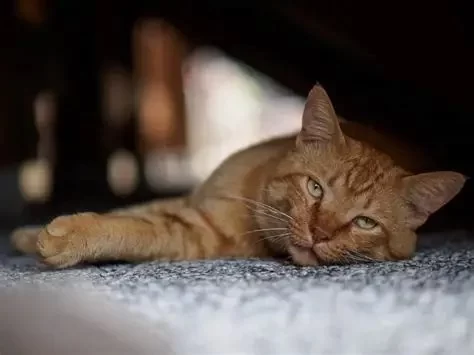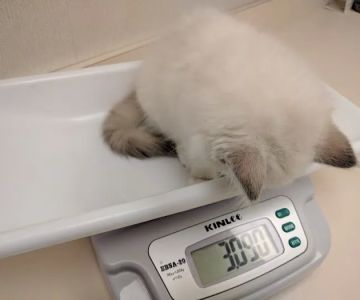- understanding-pet-appetite-loss - Understanding Why Pets Stop Eating
- common-medical-causes - Common Medical Causes of Appetite Loss
- behavioral-and-environmental-factors - Behavioral and Environmental Factors
- when-to-seek-professional-help - When to Seek Professional Veterinary Help
- real-life-case-from-hidden-brook - Real-Life Case from Hidden Brook Veterinary
- how-to-encourage-eating - How to Encourage Your Pet to Eat Again
- preventive-care-and-nutrition - Preventive Care and Nutrition Tips
- final-thoughts-on-pet-care - Final Thoughts on Caring for a Pet That Refuses Food
1. Understanding Why Pets Stop Eating
When your dog or cat suddenly refuses food, it can be worrying. Loss of appetite, or anorexia, isn’t always about pickiness—it’s your pet’s way of signaling that something may be wrong. Animals often mask pain or discomfort, so a skipped meal might be an early warning sign. Understanding why pets stop eating helps you act quickly and appropriately.
1.1 The difference between temporary and serious loss of appetite
Sometimes pets lose interest in food for harmless reasons, such as a change in diet or temperature. But if your pet hasn’t eaten for over 24 hours, or shows signs like lethargy, vomiting, or drooling, you should consider professional evaluation. Early attention often prevents more severe complications.
2. Common Medical Causes of Appetite Loss
Medical conditions are among the most common reasons for appetite loss in pets. Some issues are mild and easily treated, while others require immediate veterinary attention. At Hidden Brook Veterinary, we frequently see cases where appetite loss is a symptom of underlying illness.
2.1 Dental pain or oral infections
Broken teeth, gum inflammation, or abscesses can make eating painful. You might notice your pet dropping food or chewing on one side of the mouth. Regular dental checkups prevent these issues before they affect appetite.
2.2 Gastrointestinal problems
Stomach upset, intestinal blockage, or parasites can lead to nausea and a lack of hunger. If your pet’s belly seems bloated or tender, avoid offering more food and contact a veterinarian immediately.
2.3 Organ disease or metabolic issues
Conditions like liver disease, kidney failure, or diabetes can all suppress appetite. Bloodwork from your vet can detect these conditions early, giving your pet the best chance for recovery.
2.4 Side effects from medication
Some prescription drugs temporarily reduce appetite. If your pet recently started new medication, ask your vet whether it could be contributing to the issue and whether dosage adjustments are possible.
3. Behavioral and Environmental Factors
Not all appetite issues are medical. Pets are sensitive to stress and environmental changes. Even small disruptions in routine can cause them to avoid food temporarily.
3.1 Stress and anxiety
Moving homes, loud noises, or the introduction of new pets can trigger anxiety that affects eating. Creating a quiet, consistent feeding area helps reduce this stress. Soft background music or familiar scents may calm your pet.
3.2 Change in diet or feeding schedule
Sudden food switches can cause digestive upset or rejection. Transition gradually between brands or flavors, mixing small portions of the new food with the old over several days.
3.3 Temperature and seasonal changes
Hot weather often reduces appetite, especially in dogs. Ensure fresh, cool water is always available and offer meals during cooler parts of the day.
4. When to Seek Professional Veterinary Help
Knowing when to call a vet is crucial. If your pet refuses food for more than 24–36 hours or shows any of these symptoms, professional intervention is necessary: vomiting, diarrhea, weight loss, drooling, or hiding behavior. At Hidden Brook Veterinary, our team evaluates both medical and behavioral causes to develop a tailored treatment plan.
4.1 What to expect at the vet
Diagnostic steps may include a physical exam, blood tests, imaging, or stool analysis. These procedures help pinpoint whether appetite loss stems from an infection, injury, or metabolic imbalance.
4.2 Importance of early intervention
Delaying treatment can worsen dehydration or organ stress. Pets rely on consistent nutrition; every skipped meal matters. Quick action increases the likelihood of full recovery.
5. Real-Life Case from Hidden Brook Veterinary
Recently, a client brought in a cat named Daisy who had stopped eating for two days. The owner assumed she was being picky, but upon examination, Daisy was diagnosed with a tooth abscess. After a minor dental procedure and a short recovery period, Daisy regained her appetite and energy. This case shows how even subtle changes in behavior can reveal bigger health issues—and how timely veterinary care makes all the difference.
5.1 Lessons from Daisy’s case
Never ignore changes in eating habits. Even minor issues like oral discomfort can escalate quickly without attention. Regular checkups and observation are key to keeping pets healthy and happy.
6. How to Encourage Your Pet to Eat Again
Once medical causes are ruled out or treated, you can take steps to help your pet regain appetite. Start with small, familiar meals and reduce environmental distractions during feeding time.
6.1 Warm or moisten food
Warming wet food slightly or adding low-sodium broth can make it more aromatic and appealing. For dry food eaters, a bit of canned food mixed in can help jumpstart interest.
6.2 Offer hand-feeding temporarily
For anxious or recovering pets, hand-feeding builds trust and encourages small bites. Gradually transition back to bowl feeding as their appetite returns.
6.3 Reinforce positive behavior
Praise or gentle petting when your animal eats can create positive associations with mealtime, especially after illness or hospitalization.
7. Preventive Care and Nutrition Tips
Preventing appetite issues starts with consistent nutrition and regular vet visits. Balanced diets, portion control, and hydration all contribute to long-term health. Annual wellness exams at Hidden Brook Veterinary can catch subtle signs before they become serious problems.
7.1 Rotate food variety safely
Offering occasional new flavors keeps pets interested without upsetting digestion. Always introduce new options gradually to maintain gut stability.
7.2 Maintain hydration
Pets often drink less water when ill. Encourage hydration with fresh water bowls, wet food, or even ice cubes for play and cooling.
8. Final Thoughts on Caring for a Pet That Refuses Food
Loss of appetite in pets is a symptom you should never ignore. Whether it’s due to stress, infection, or dental pain, addressing it early prevents serious complications. Monitoring your pet’s behavior daily builds a stronger connection and keeps you ahead of potential health issues. For personalized advice, reach out to Hidden Brook Veterinary, where compassionate care meets expert diagnosis. Their team ensures every meal your pet enjoys is one step closer to lifelong wellness.












